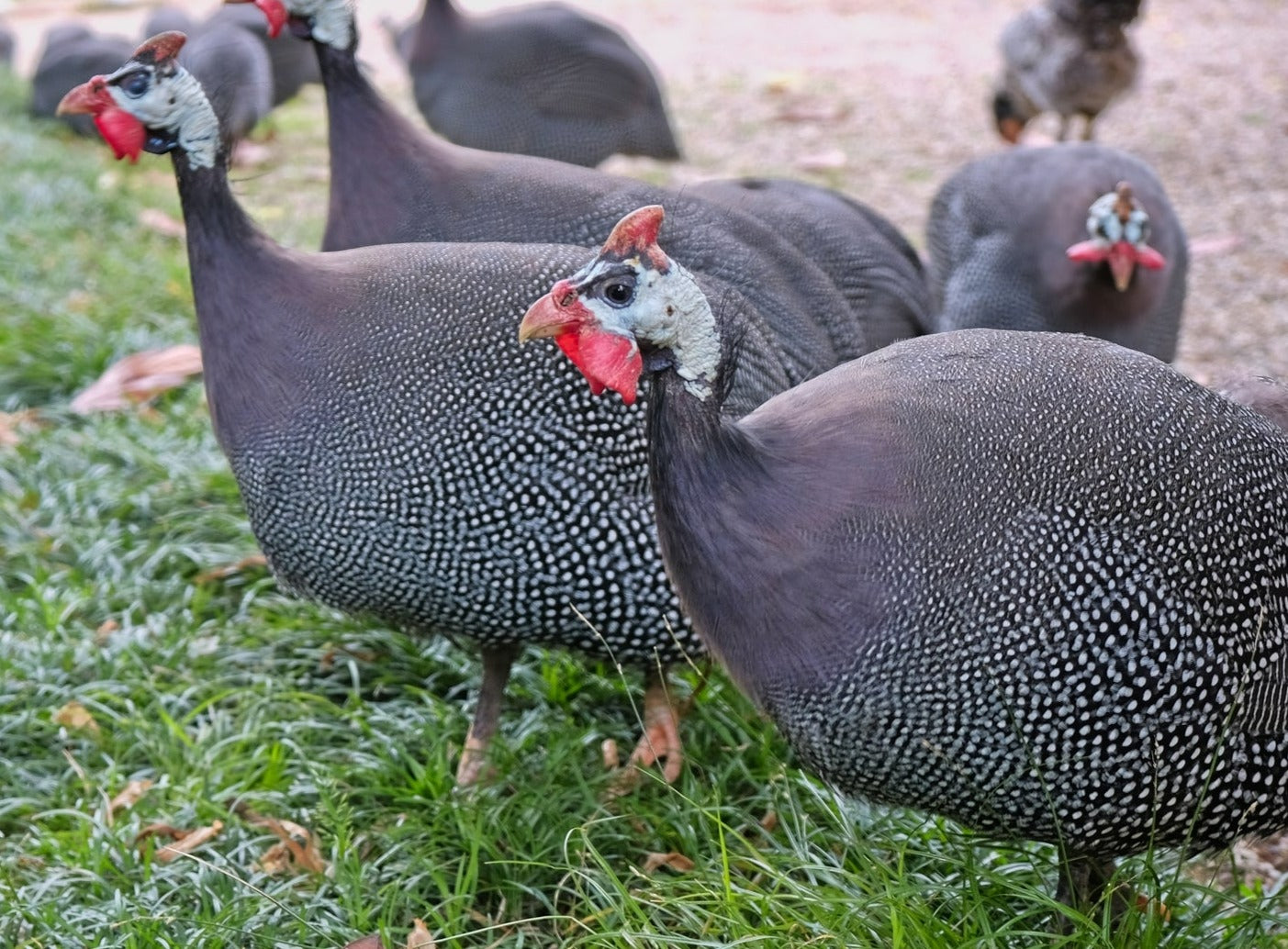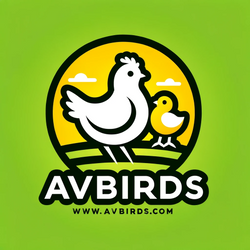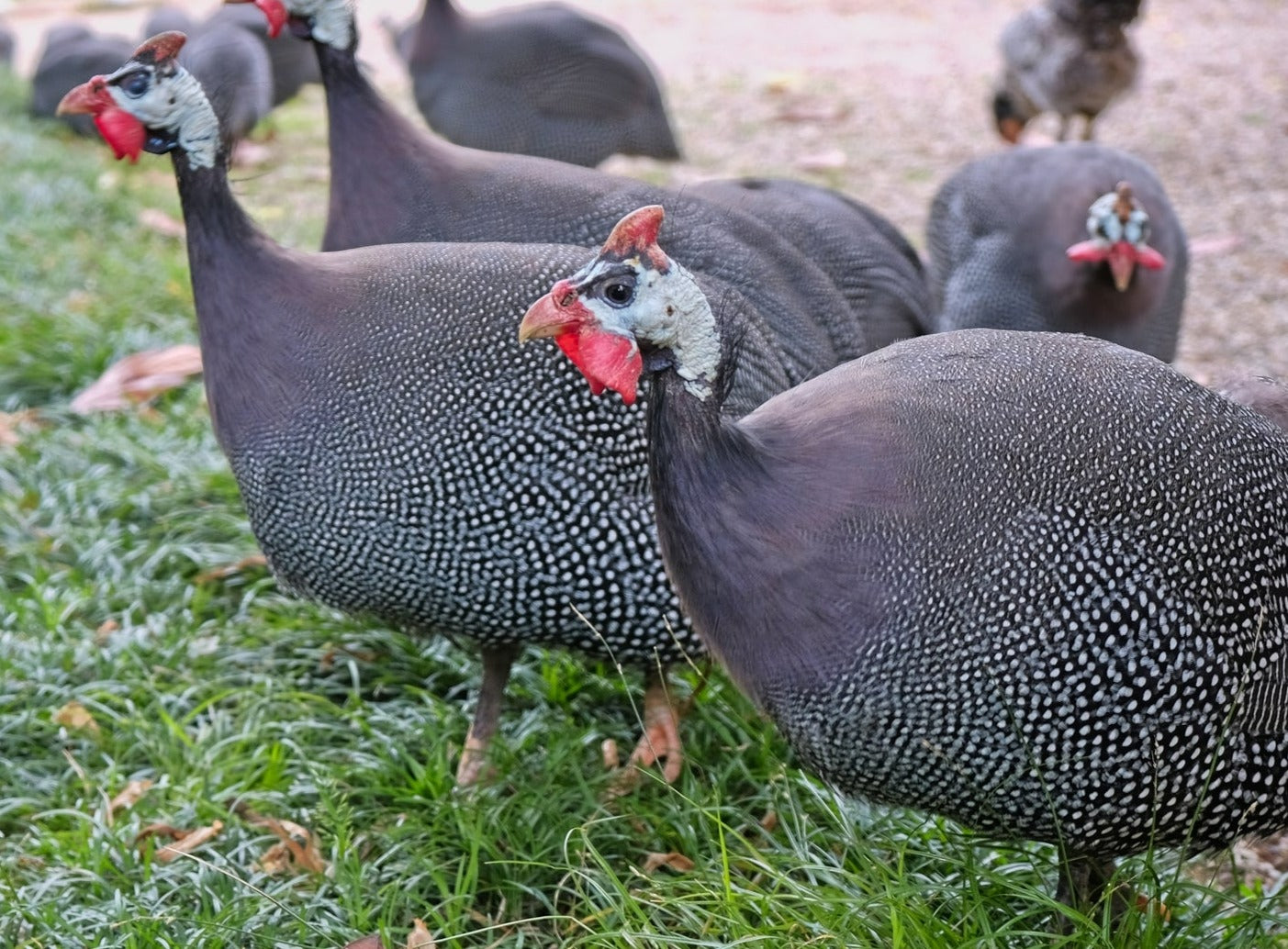AV Bird Hatchery
PEARL FRENCH GUINEA FOWL KEETS


Pearl French Guinea Fowl Keets -- AVAILABLE ALL YEAR LONG
Minimum order is 15 Keets.
Guineas are native to the continent of Africa but were brought to America before the 1850s. People choose to raise guineas for meat, guinea eggs, and even as protectors for their properties. French guinea fowl is considered to be one of the hardiest of all domesticated fowl. Guinea hens reproduce naturally, meaning that if they’re permitted to roam free, they can produce offspring. They are notorious foragers and do a great job of pest control—including keeping mouse, small rat, and snake populations under control.
When guinea fowl are correctly fed by using game-bird starter and broiler feed to accelerate growth and weight, they will reach a market weight of four pounds by 12 weeks of age.
Guinea Fowl meat
French Guinea fowl, or baby guineas, grow to be superior meat producers, with meat accounting for a generous percentage of their live weight.
Guinea fowl are also known for controlling ticks—which carry diseases like Lyme and Rocky Mountain spotted fever. And let’s not forget rodent control. They’re mice and rats’ worst enemies! Superior “watch birds,” guinea fowl will loudly screech when they detect anything unusual, including intruders like humans and other predators.
And as a bonus, guinea hens lay approximately 100 brown, triangular eggs per year, from March through August.
Guinea Fowl Temperament
Guinea fowl are highly social within their flock. They can be easily startled and will defend themselves and their property with loud screeches and chirps. This behavior gives them a reputation for being protective, independent, and cautious.
Guineas are considered less intelligent than other birds, but that quality contributes to their entertainment value. For instance, they will amuse themselves for hours, staring at their own reflections.
How Long Will it Take for Guinea Fowl to Mature?
By 16 weeks of age, guinea fowl will have developed full plumage and markings. They are then considered to be mature. If guinea fowl are hatched early in the season, they may produce eggs that Autumn.
Frequently Asked Questions about Guinea Fowl
We have collected a few of the questions we most often get about guinea keets and guinea fowl in general.
What Do Guinea Fowl Eat?
Adult guinea fowl graze all day, consuming ticks, grasshoppers, crickets, flies, and other insects, small rodents, and even small snakes. They are pretty self-reliant and resourceful, getting a significant amount of nutrition from their environment. In fact, you can think of guinea fowl as an organic alternative to other toxic pest-control options.
Can You Eat Guinea Fowl?
Absolutely! Guinea fowl are raised for their meat, known for being dark, tender, lean, and of great nutritional value. The meat is less gamey than that of wild birds, and there are no tendons in the thighs or legs, as in pheasants.
What are the Differences Between a Guinea Hen and a Chicken?
Guinea hens are considered wild birds, so their meat is gamier than that of a chicken—but it also has 50% less fat. In general, guinea hens require less financial investment and maintenance than chickens.
Guinea fowl are more aggressive, and if sharing space, will dominate your chickens. The best way to avoid problems is to integrate young guinea fowl and baby chicks as early as possible.
Guinea eggs are pointier and smaller than large chicken eggs, but the flavor is very similar.
Straight Run Only


